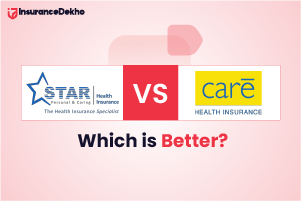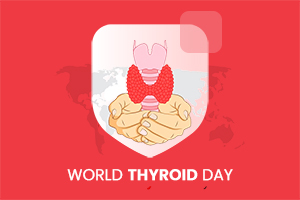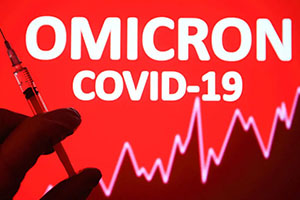

- Tax BenefitUp to 75000**
- Claim SupportEveryday 10AM-7PM
- 45 Lacs+Happy Customers
*Standard Terms and Conditions Apply.
**Tax benefits are subject to changes in Income Tax Act.
What Are Health Insurance Plans?
Health insurance plans often referred to as medical insurance, offer financial support to policyholders for various medical costs. These expenses can include surgeries, treatments, hospital stays, and bills resulting from illnesses, injuries, or accidents. When you need to use your medical health coverage, the insurance company will follow the rules outlined in the policy and provide the necessary benefits.
In simple words, a medical insurance or health insurance plan is like an agreement. The insurance company promises to cover the expenses if you need medical care. This could be because you get sick or injured and need treatment. In many cases, health insurance companies work together with specific hospitals, often called network hospitals. This helps you because you can get treatment at these hospitals without having to pay right away and enjoy the best health cover.
| Best Health Plan | Network Hospitals | Maximum Sum Insurance | Entry Age | Covid-19 Treatment |
|---|---|---|---|---|
| Aditya Birla Active Assure Diamond Plan | 6,000+ | Rs. 2 Crore | 91 days and above | Covered |
| Bajaj Allianz Health Guard Policy | 6,500+ | Rs. 50 Lakh | 3 months to 65 years | Covered |
| Care Freedom Policy | 8,250+ | Rs. 10 Lakh | 91 days and above | Covered |
| Care Health Insurance Policy | 8,250+ | Rs. 6 Crore | 91 days and above | Covered |
| HDFC ERGO my: Health Suraksha Plan | 10,000+ | Rs. 75 Lakh | 91 days and above | Covered |
| HDFC ERGO Optima Restore Plan | 10,000+ | Rs. 50 Lakh | 91 days to 65 years | Covered |
| Niva Bupa Health Recharge Policy | 4,500+ | Rs. 25 Lakh | 3 months to 65 years | Covered |
| Star Diabetes Safe Policy | 9,900+ | Rs. 10 Lakh | 18 years to 65 years | Covered |
| Star Family Health Optima Plan | 9,900+ | Rs. 25 Lakh | 16 days to 65 years | Covered |
| Star Young Star Insurance Policy | 9,900+ | Rs. 1 Crore | 91 days to 40 years | Covered |
Disclaimer: The list is organized in alphabetical order based on the names of standalone insurers. InsuranceDekho neither endorses, rates nor recommends any specific insurer or insurance product offered by any insurer. The insurance plans included herein represent products offered by our partner insurers. For a comprehensive list of insurers operating in India, please refer to the official website of the Insurance Regulatory and Development Authority of India (IRDAI) at www.irdai.gov.in.
Best Health Insurance Plans In India
Care Supreme Discounted
Care Health Insurance Limited
Cover Amount
5 Lakh
Starting at
615/month
- No room rent limit
- Unlimited restoration benefits View More Features
Cover Amount
5 Lakh
Starting at
628/month
- No room rent limit
- 100% no claim bonus View More Features
Comprehensive Individual
Star Health
Cover Amount
5 Lakh
Starting at
708/month
- Single Private A/C Room
- 100% restoration benefits View More Features
Active One Max
Aditya Birla
Cover Amount
5 Lakh
Starting at
517/month
- No room rent limit
- 100% no claim bonus View More Features
Elevate
ICICI Lombard
Cover Amount
5 Lakh
Starting at
441/month
- Single Private A/C Room
- 20% no claim bonus View More Features
Benefits of Health Insurance Plans
Health insurance plans protect your savings from getting ruined in case of serious health conditions that result in hospitalisation during the policy period. But most of the people believe that these plans only cover them for hospitalisation expenses, which is not true. The key purpose of medical insurance is to provide comprehensive coverage to the insured, which they do so by offering protection for various healthcare expenses. Some of these include cover for in-patient hospitalisation expenses, pre-hospitalisation and post-hospitalisation expenses, daycare expenses, domiciliary treatment expenses, organ donor expenses, etc. Apart from coverage benefits, health insurance plans also offer other benefits. To understand them in detail, read below:
1. Cashless Treatment
Health insurance companies, generally, have tie-ups with hospitals wherein the insured can avail the required treatment without paying anything except the non-medical expenses or the expenses that the policy does not cover. Network hospitals are present across India and you can avail treatment in any of them, provided the treatment availed is in accordance with the terms and conditions mentioned under your plan.
2. Comprehensive Coverage
Health insurance plans offer comprehensive coverage by protecting you from several healthcare expenses. These include the following:
- In-Patient Hospitalisation Expenses: These include expenses incurred during hospitalisation for at least 24 hours. Under this benefit, these plans mostly cover you for room rent, nursing, boarding expenses, ICU/ICCU expenses, doctor’s fee, etc.
- Pre-Hospitalisation And Post-hospitalisation Expenses: These are the expenses incurred for a specific number of days before and after hospitalisation. These include doctor’s consultation fee, x-rays, other tests, etc. Different insurance companies have different periods for which they cover these expenses.
- Ambulance Expenses: These are the expenses incurred due to transportation of the patient to the nearest hospital in case of an emergency. Usually, insurance companies have a limit to these expenses, which varies from one insurance company to another.
- Domiciliary Expenses: These are the expenses incurred due to treatment availed at home, mainly due to unavailability of beds in the hospital. Mostly, health insurance companies cover you for these expenses.
- Daycare Treatments: Daycare treatments are those which can be availed in less than 24 hours. These include radiotherapy, dialysis, chemotherapy, cataract treatment, etc. The number of daycare treatments covered may vary from one insurance company to another.
- Organ Donor Expenses: Most health insurance plans offer cover for expenses incurred on organ donors for harvesting. These include expenses related to surgery and storage of organs.
3. Portability Benefits
Another benefit of health insurance is that it offers flexibility to port from one health insurance policy to another in case you are not satisfied with the benefits offered under the existing one. Apart from giving the customers flexibility, it also saves them from being taken for granted by the insurance companies.
4. Financial Security Even During Rising Healthcare Expenses
Health insurance helps you combat financial stress in case of an emergency even during rising healthcare expenses. It offers you wide coverage even in times of inflation. Therefore, it is recommended to buy a suitable policy.
5. Tax Benefits Under Section 80D of the Income Tax Act, 1961
The government of India promotes health insurance by offering tax deductions on the premium paid for the plans, under Section 80D of the Income Tax Act, 1961. To understand the tax benefits in detail, refer to the table below:
|
Situations |
Premium Paid (Self, Family, Children) |
Premium Paid (Parents) |
Deduction under Section 80D of the Income Tax Act |
|
When Policyholder and Parents are below 60 years |
Rs. 25,000 |
Rs. 25,000 |
Rs. 50,000 |
|
When Policyholder and family members are below 60 years with parents above 60 years |
Rs. 25,000 |
Rs. 50,000 |
Rs. 75,000 |
|
When Policyholder, family members and parents are above 60 years |
Rs. 50,000 |
Rs. 50,000 |
Rs. 1,00,000 |
|
Members of HUF |
Rs. 25,000 |
Rs. 25,000 |
Rs. 25,000 |
|
Non-resident Individuals |
Rs. 25,000 |
Rs. 25,000 |
Rs. 25,000 |
Health insurance benefits not only depends on the features and benefits offered under them but also on how the insured is able to make the most of it. So, if you don’t want your health insurance plan to be underused, you must thoroughly understand its benefits as well as the process to avail of them.
Health Insurance Calculator
Whom do you want the insurance for ?
Where do you live ?
Choose required Coverage for yourself?
How To Select The Best Health Insurance Plan in India?
There are a number of factors that should be considered while buying the best plan. Below mentioned are some of the primary parameters:
- Coverage Offered
An important factor while buying a health insurance plan is the comprehensive coverage that it offers. Comprehensive coverage covers the entire medical expenses and even lowers the out-of-pocket expenses. So, it is always better to opt for an all-inclusive plan. However, make sure that the coverage benefits cover only what you require so that you do not have to pay extra. Never choose coverage benefits that may not be apt for you and simply elevate the cost of the premium. For instance, if you already have children and have a family plan then in such a case maternity coverage would become unnecessary.
- Sum insured
It is best to look for policies that offer the minimum and maximum coverage levels because you are able to choose the best sum insured to cover expected medical expenses.
- Cashless hospitals
The best health insurance plan in India provides a vast network of hospitals and ensures cashless services. This can in turn ease your task to locate a network hospital in your area and benefit from the cashless claims.
- Premium
The premium of the policy must be comparable enough to other insurance plans. However, evaluate both the coverage benefits and premium charged to decide the premium rate.
- Pre-existing waiting period
In the event that you or a member of your family has a preexisting illness, then it is wise to choose a plan with a shorter waiting period in order to receive coverage for such illnesses as soon as possible.
- Add-on riders
Many plans let you add optional riders to your policy in order to improve the coverage. So, look for plans that have the option of adding extra riders and customise your coverage based on your needs.
Additionally, you can also look for monthly health insurance plans if you want to save on health insurance premium.
Why Buy The Best Health Insurance Policy?
In today’s time, the cost of healthcare is rapidly increasing so much that it becomes important to buy a health insurance plan that can meet your medical expenses. The health insurance policies not only protect you and your family against expensive hospital costs but also lets you enjoy a happy and secured future. When it’s time to buy these policies, there are chances that you get confused about which one to choose from a variety of options.
So, we at InsuranceDekho are here to assist you in selecting a health insurance policy that meets your health insurance requirements. To find the best health cover, compare and opt for the health insurance plan for yourself and your family that covers your medical expenses ranging from day-care costs, critical illness treatment, coronavirus treatment, etc, based on your preferences.
Factors Affecting Health Insurance Plans Premium
Listed below are some factors affecting your choice of best health plan premium:
- Age: An important factor influencing the premium is age since older people have a higher chance of falling ill, as per the rule of thumb.
- Past Medical History: In case you have a pre-existing medical illness, then your insurance premium may get affected and up the cost.
- Policy Duration: The policy tenure is another factor that affects the premium. The longer the plan will have the lesser the premium, so buy accordingly.
- Injurious substances: It is common for insurers to raise their premium rates for their policies if the insured smokes, chews tobacco, or snuffs, as they are more concerned if the insured gets cancer diseases.
- Nature of Profession: High-risk jobs such as construction, or working in hazardous environments with radiation and chemicals, may require higher premiums since accidents and cardiovascular diseases are more likely to occur.
Process to Buy an Online Health Insurance Plan with InsuranceDekho
At InsuranceDekho, buying a health insurance plan online is super easy and quick. In just 3 simple steps, you can plan the purchase:
Step 1: Enter Your Personal Details
Enter all the personal details including name, mobile number, email ID, gender, city, and so on, correctly to see the top health insurance plans that suit your requirements.
Step 2: Compare Health Plans Online
Compare the policy quotes to find the one that suits your budget as well as other requirements.
Step 3: Make Payment Online
Pay the premium online for buying the health insurance policy of your choice and get the policy document in a flash on your registered email ID.
Health Insurance Coverage Calculator
Who do you want to insured ?
- Individual
- Couple
- Family
- Parents
Age of eldest insured member ?
Where do you live ?
Documents Required to Buy Health Insurance Plan in India
You can purchase health insurance by submitting the below-given documents:
- Age proof: Buying health insurance at a fixed entry age requires you to provide a document to prove your age. You can submit the below documents for age proof:
- Pan Card
- Passport
- Voter ID Card
- Aadhaar Card
- Driving License
- Birth certificate
- 10 or 12th Marksheet
- Identity proof – This document is required for records to help your insurance in verifying the genuineness of the person. To prove your identity, you can submit any of the following:
- Passport
- Voter ID Card
- Aadhaar Card
- Driving License
- Address Proof – Your insurance company needs to contact you at your postal address, which is why address proof is required. You can submit any of the below-given documents for it:
- Passport
- Aadhaar Card
- Ration card
- Driving license
- Rent agreement
- Utility bills like electricity bills, telephone bills, etc.
- Proposal form duly filled in and signed
- Medical reports (if demanded by the insurer)
- Passport-size photographs (if demanded by the insurer)
Claim Settlement Process in Health Insurance Plans
Under health insurance, you can claim in two ways, i.e. cashless claim and a reimbursement claim. A cashless claim is when you do not pay anything at the hospital for the treatment availed. Whereas in reimbursement claim, you will be first required to pay for the treatment taken, at the hospital, and the insurance company pays to you later. The claim processes for them are mentioned below:
Cashless Claim
To make a cashless claim, you will be required to follow the steps given below:
- Immediately inform the insurance company in the event of hospitalisation at a network hospital of your choice. Generally, you are required to inform the insurance company within 24 hours of hospitalisation in case of emergency, whereas 48 hours prior in case of planned hospitalisation.
- You will be required to share health insurance details at the network hospital. Show your Health ID card or your policy number with a valid photo ID proof at the desk of the hospital.
- Once the identification has been done, the network hospital will send you the pre-authorisation request form to the insurance company.
- The insurance company will then verify and analyse the documents and may ask the network hospital for more information if required.
- Once the formalities have been completed, the insurance company will pay the medical expenses excluding co-payment if any, directly at the network hospital. You will be informed about the same within the stipulated time. Even if the claim is rejected, you will be informed about the same.
Reimbursement Claim
To avail reimbursement treatment, you must follow the steps given below:
- Inform the insurance company within the stipulated time, in case of hospitalisation. You can also connect directly with the insurance company via email.
- Avail the required treatment at the hospital if your policy covers you for the same. Collect all the medical test reports, discharge summary, medical invoices, and other relevant documents from the hospital to share to the insurance provider.
- Submit the claim documents along with required medical documents to the insurance provider.
- You will be required to submit the following documents to the insurance company in case of reimbursement claim:
- Valid ID proof
- Medical practioner’s advising letter for hospitalisation
- Original hospital bills and discharge certificate signed by the medical practitioner
- Medical practioner’s prescription for consultation, medicine, and medical tests
- Original pharmacy bills
- Original reports of diagnostic tests, reports, etc.
- First Information Report (FIR), in a police case
- Post Mortem Report, if applicable
Health Insurance Plan Eligibility Criteria
Some of the basic eligibility criteria for buying a health insurance policy has been listed below:
- Minimum Entry Age: You can buy a health insurance plan at any age between 18 and 65. It can even go up to 70 and above in some rare situations, depending on the insurer. On the other hand, the coverage for a child is between 16 days to 18 years.
- Pre-Existing Medical Conditions: In case you buy a health insurance plan after the age of 45, then it is possible that you may have to go through a few medical tests or otherwise you may also be required to submit a pre-existing condition declaration based on which insurers will provide the plan.
Types Of Health Insurance Plans In India
Knowing the different types of health insurance available makes it easier to choose which policy to purchase. In India, there are 7 types of health insurance policies to meet the different requirements of people. These are explained below, along with best selling plans in these categories:
1. Individual Health Insurance
In Individual health insurance plans, a single individual serves as the policyholder and gains all the coverage benefits offered under them. These plans usually cover the medical expenses of insureds based on the sum insured chosen and the premium paid. Some of the benefits offered under these plans include hospitalisation expenses on an in-patient basis, pre-hospitalisation and post-hospitalisation basis, daycare expenses, and domestic hospitalization expenses. This is best suited for people who have higher health risks, and it generally comes without any limit on the maximum age for policy renewal which means that the plan offers lifetime renewability benefits to the insured. Also, one can include their parents and immediate family members under the policy, on an individual sum insured basis. There are no restrictions on how many claims can be made during the term of an individual health insurance plan.
Some popular individual health insurance plans available in the market are:
- Young Star Policy by Star Health And Allied Insurance
- Activ Assure Diamond Policy offered by Aditya Birla Health Insurance
- Super Care Policy offered by GoDigit General Insurance
- Activ Health Policy offered by Aditya Birla Health Insurance
2. Family Floater Health Insurance
A family floater health insurance plan offers coverage to the entire family, on a floater sum insured basis. It is advantageous to have family floaters as it makes it easier for an individual to manage his or her health insurance by covering himself or herself as well as family members. A family floater health insurance policy is also an affordable option when you have to include your parents in the policy as compared to a senior citizen health insurance plan. It also offers coverage to the following members of your family: legally wedded spouse, parents, brother, sister, dependent children, parents-in-law, and other relations varying from plan to plan, at affordable premiums. Young families are recommended to take advantage of these policies, as there is less chance of making more than one claim, and the member making the claim can obtain greater coverage at a lower cost.
Some popular family floater health insurance plans available in the market are:
- Family Health Optima offered by Star Health & Allied Insurance
- Reassure Policy offered by Niva Bupa Health Insurance
- Optima Restore offered by HDFC General Insurance
3. Senior Citizens Health Insurance
Senior citizen health insurance plans are meant to meet the insurance needs of people aged between 60 years and 75 years. It is advisable to get a senior citizen health insurance policy as most individual or family floater health insurance plans fail to provide coverage to people aged above 65 years and only allow renewals. Daycare expenses, cashless hospitalisation, domiciliary hospitalisation expenses, cover for pre-existing diseases, and cover for specific diseases are some of the coverage benefits of senior citizen health insurance plan.
Some popular senior citizen insurance plans available in the market are:
- My Health Suraksha offered by HDFC Ergo General Insurance
- Care Plan offered by Care Health Insurance
- Senior Citizen Red Carpet Policy offered by Star Health & Allied Insurance
4. Critical Illness Insurance Plans
A number of life-threatening illnesses like heart attack, stroke, paralysis, cancer, renal failure, etc. are covered under critical illness insurance plans. These plans offer a lump sum amount on the first diagnosis of the critical illness and the insured can use this amount both in India as well as outside India. The insured can even use this money to clear debts if any, such as for a child’s education, or any other way based on the requirement. It is recommended to be covered under a critical illness policy as the treatments of critical illnesses are expensive. If someone is diagnosed with a critical illness, then you may have to burn your pocket in case you have to bear the expenses on your own.
Some popular critical illness health insurance available in the market are:
- Care Freedom Policy offered by Care Health Insurance
- Comprehensive Health Insurance Policy offered by Star Health & Allied Insurance
- Health Companion Policy offered by Niva Bupa Health Insurance
5. Women-Specific Health Insurance
As the name suggests, Women-specific health plans are specially designed to cater to the insurance-related requirements of women of different age groups. Plans like these protect women from healthcare expenses at the time of maternity, retirement, cover for newborn babies, cover for child education, etc. In addition, they also cover women for specific diseases which they are prone to, after a specific age. Even if a woman already has an individual health insurance policy that the employer has provided to her, it is still better that she should buy a women-specific policy. The reason is that an individual health insurance plan, unlike a women-specific health insurance plan, sometimes fails to meet the specific needs of women and hence they miss out on coverage benefits. Also, these plans come at affordable premiums and generally offer lifetime renewability benefits to the insured.
Some popular specific health insurance plans available in the market are:
- Health Guard Policy by Bajaj Allianz General Insurance
- Comprehensive Health Insurance Policy y Star Health & Allied Insurance
- Care Joy Policy by Care Health Insurance
6. Top-Up and Super Top-up Health Plans
A top-up or super-top-up health insurance policy lets individuals increase their base policy's sum insured to cover the shortfall in case hospital bills exceed the plan's coverage. This policy kicks in when the amount of claim exceeds the deductible value and the sum insured of the base health insurance plan during a policy term, in case of single hospitalisation. All claims are treated individually in these plans. Super top-up plans cover medical expenses incurred during a policy term that exceeds the deductible and sum insured limit of the base health insurance plan. They also cover expenses that aren't covered by your top-up or base policy. However, the only difference is that the super top-up policy takes into account multiple hospitalisations. One can purchase a super top-up insurance policy from any insurance company irrespective of which insurance company’s base policy one has.
Some popular top-up and super top-up health plans available in the market are:
- Health Recharge Policy by Niva Bupa Health Insurance
- Lifeline Supreme Super Top-Up Policy by Royal Sundaram Health Insurance
- Extra Care Plus Policy by Bajaj Allianz General Insurance
7. Disease-Specific Health Plans
People looking for wide coverage for a particular disease may be interested in disease-specific health insurance plans, such as cancer, diabetes, heart disease, etc. This plan can also be opted for by those who have a corporate health insurance plan or any regular health insurance plan as such plans may not always offer sufficient coverage for specific diseases. Disease-specific health plans eliminate the waiting period, which otherwise you are required to complete if covered under a regular plan. The plan however is best suited for people with a family history of a particular disease like hypertension, diabetes, etc.
Some popular critical illness health plans available in the market are:
- Diabetes Safe Policy by Star Health & Allied Insurance
- Comprehensive Health Insurance Policy offered by Star Health & Allied Insurance
- Care Freedom Policy by Care Health Insurance
How to Compare Health Insurance Policy Online?
Here are some important tips that will help you make an informed decision while you compare health insurance plan:
1. Choose an Appropriate Sum Insured: Considering the annual inflation rate for healthcare, you must choose a health insurance policy with sufficient sum insured. It is true that health insurance plans with higher sum insured come at higher premiums but to save on that, you must not compromise with the sum insured. This is because a health plan with insufficient sum insured may not be of any use when the time comes.
2. Provide Correct Details to The Insurer: You must reveal all the details as asked, about your health in the proposal form. This because any misrepresentation of information can lead to trouble at the time of claim settlement. The insurer may also reject your form if complete information is not provided by you.
3. Consider Factors Affecting Health Insurance Premium: There are several factors that affect premium for health insurance policy. These include number of members covered under the policy, sum insured chosen, policy term chosen, claim settlement ratio of the insurance company, add-on benefits, premium, and inclusions and exclusions. It is found that health insurance for senior citizens is generally higher as they are more prone to falling ill.
4. Reviews: Apart from checking insurance company’s credibility by checking its Claim Settlement Ratio and Incurred Claim Ratio, you must also check how the policy buyers are liking the policy. At InsuranceDekho, you can check numerous reviews for different health insurance plans by people who are already covered under it. This will help you make an informed decision.
Why Comparing Health Insurance Policy is Important?
It is understood that it can be difficult to choose the most suitable private medical insurance plan from a pool of them in the market. This is why you must compare health insurance plans using InsuranceDekho’s health insurance premium calculator. The free tool not only allows you to calculate premiums for health insurance but also lets you compare them in terms of premium and coverage benefits. Thus, compare health insurance plans instead of buying the first plan you saw, as it helps you choose the most suitable one as per your requirement and make an informed decision.
Optional Add-Ons to Add in Best Health Insurance Plans
In health insurance add-on coverage, additional features, and coverage are not included in the standard plan but must be purchased separately at an additional cost. The add-ons or riders help to improve the benefits and also the sum insured of the health insurance policy that can be availed on account of pre-determined events. However, please note that the premium should not exceed 30% of its original premium or health insurance add-on covers availed under a single plan. So, in the section below let’s discuss a few popular add-ons to include in your plan:
1. Maternity and Newborn Cover: Under this add-on policy, all the expenses related to pregnancy and childbirth are covered. Hospitalisation and surgery fees in case of pregnancy can be extremely expensive and the following months may also involve constant spending on the medical care of the child. So, this add-on cover can be very helpful in such circumstances.
2. Hospital Cash Cover: The insurance company gives the insured individual a daily cash allowance during hospitalisation and under this, you are covered for up to Rs. 10,000 per day for 30 days spent in the hospital. The coverage includes medical and diagnostic expenses which are not covered under the standard policy, thereby ensuring financial security not only during the treatment but even after you have been discharged.
3. Room Rent Waiver: The add-on cover for hospital room rent allows you to enhance the sub-limit in your health insurance policy or to remove it altogether.
4. Critical Illness Add-on Cover: In event of critical or life-threatening illness, this add-on policy offers coverage in the form of a payout. Besides, it also provides additional coverage apart from the sum insured, which can be extended to Rs. 10 lakhs. Coverage for critical illnesses, including cancer, cardiovascular disease, and so on, makes it possible for you to manage your health complications without facing a financial crisis.
5. Emergency Ambulance Services: With this, the insured can benefit from the cost of ambulance charges to the hospital of their choice irrespective of what kind of medical emergency has occurred. With this cover, an emergency ambulance costs up to Rs. 30,000 or even more can be covered, which enables you to avail the best emergency care at any hospital.
6. OPD Add-on Cover: The majority of people in India go to the OPD rather than being hospitalised, so an OPD add-on cover is important for saving money on doctor consultation charges, dental expenses, ophthalmic and optic services, etc. With this cover, you also get coverage for online consultations or teleconsultations from experienced or certified doctors to cope.
Common Inclusions Under Health Insurance Plans
Listed below are some of the inclusions of health insurance:
- Pre and post-hospitalisation expenses
- Daycare procedures
- Ayush treatment
- Domiciliary treatment
- Modern treatment
- Ambulance cover
- E-consultation
In addition to those listed above, the inclusions may vary depending on the health insurance policy you buy.
Common Exclusions Under Health Insurance Plans
Here are some of the common exclusions of a health insurance plan that you should know about:
- Any injury due to involvement in adventurous activity
- Obesity-related treatment
- Any injury due to war activities
- Injury due to consumption of alcohol
- Infertility treatment
Please note that the exclusions will be mentioned in your plan.
Buy Coronavirus Health Insurance Policy
Buy Health Insurance Plans With
 Niva Bupa Health Insurance
Niva Bupa Health Insurance Care Health Insurance
Care Health Insurance Magma Health Insurance
Magma Health Insurance National Health Insurance
National Health Insurance United India Health Insurance
United India Health Insurance New India Assurance Health Insurance
New India Assurance Health Insurance Liberty Health Insurance
Liberty Health Insurance Kotak Mahindra Health Insurance
Kotak Mahindra Health Insurance IFFCO Tokio Health Insurance
IFFCO Tokio Health Insurance Cholamandalam Health Insurance
Cholamandalam Health Insurance Oriental Health Insurance
Oriental Health Insurance Future Generali Health Insurance
Future Generali Health Insurance Digit Health Insurance
Digit Health Insurance SBI Health Insurance
SBI Health Insurance Bharti AXA (now ICICI Lombard) Health Insurance
Bharti AXA (now ICICI Lombard) Health Insurance Reliance Health Insurance
Reliance Health Insurance Tata AIG Health Insurance
Tata AIG Health Insurance Navi Health Insurance
Navi Health Insurance Bajaj General Health Insurance
Bajaj General Health Insurance ICICI Lombard Health Insurance
ICICI Lombard Health Insurance Aditya Birla Health Insurance
Aditya Birla Health Insurance Raheja QBE Health Insurance
Raheja QBE Health Insurance Universal Sompo Health Insurance
Universal Sompo Health Insurance Royal Sundaram Health Insurance
Royal Sundaram Health Insurance Zuno Health Insurance
Zuno Health Insurance HDFC ERGO Health Insurance
HDFC ERGO Health Insurance ManipalCigna Health Insurance
ManipalCigna Health Insurance Star Health Insurance
Star Health Insurance Acko Health Insurance
Acko Health Insurance
Disclaimer: InsuranceDekho does not endorse, rate or recommend any particular insurance company or insurance plan.

*Tax benefits are subject to changes in Income Tax Act.
Types of Health Insurance Plans
Health Insurance Terminologies
Buy Critical Illness Health Insurance
Learn more about plans Health Insurance
Best Insurance Advisors in Your City.
FAQ About Best Health Insurance Policy
-
-
What are the common exclusions under health insurance plans?
Health insurance plans do not offer cover for all healthcare expenses. Some common exclusions include expenses incurred on treatment due to self-inflicted injuries including suicide, expenses incurred due to participation in any adventurous sport, pre-existing conditions are not covered during the waiting period, venereal or sexually transmitted disease, cosmetic treatments, treatments related to dental, hearing, and vision, expenses incurred on treatment of obesity, and cover for accidents due to participation in defence operations.
-
Do health insurance plans cover healthcare expenses related to COVID-19?
Yes. Standard health insurance plans offer cover for expenses incurred due to positive diagnosis of COVID-19. The health insurance policy will cover you for in-patient and outpatient expenses arising due to treatment of COVID-19. You can also purchase health insurance plans especially designed for coronavirus. These include Corona Kavach Policy and Corona Rakshak Policy. These are short term policies that offer cover against the pandemic declared coronavirus. For more information about these policies, you can connect to the customer care executives at InsuranceDekho and they will help you understand them in detail.
-
What are the benefits of having a health insurance policy?
A health insurance policy offers you a cashless treatment facility allowing you to get the required medical treatment at the network hospital without paying even a single penny. It offers you several benefits apart from cashless treatment, such as pre-hospitalisation and post-hospitalisation expenses, tax benefits under Section 80D of the Income Tax Act, 1961, daily hospital cash benefit in some plans, organ transplant expenses, No Claim Bonus, lifetime renewability benefit, automatic restoration of sum insured, etc.
-
What is the restoration benefit under health insurance plans?
If your sum insured amount gets exhausted under a health insurance insurance policy due to claims made in a policy year, then the insurance company will restore the amount automatically without having you to pay anything extra to avail the benefit. Health insurance plans that offer restoration benefits are generally available at higher health insurance premiums.










































.jpg)









